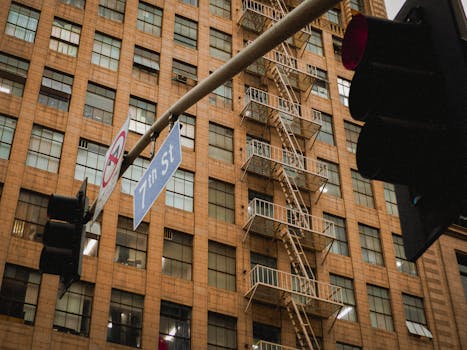Safety Tips for Solo Travelers

Traveling solo can be an incredibly rewarding experience, offering the freedom to explore at your own pace and immerse yourself in new cultures. However, it also comes with unique challenges and risks. Whether you're embarking on a short weekend getaway or a months-long adventure, taking precautions to ensure your safety is paramount.
Solo travel requires a heightened sense of awareness and preparedness. Without the safety net of companions, it's essential to plan meticulously, stay vigilant, and be adaptable. From choosing safe accommodations to understanding local customs, every decision you make can significantly impact your experience.
In this guide, we will delve into practical safety tips for solo travelers, drawing on expert advice and real-world experiences. These tips will help you navigate your journey confidently, ensuring that your adventures are both memorable and safe.
Research and Planning
Thorough research is the foundation of a safe solo trip. Start by learning about your destination's safety conditions through reputable sources like travel advisories from government websites. Understanding the local culture, customs, and laws can prevent misunderstandings and help you blend in more effectively.
Choose accommodations in safe neighborhoods and read reviews from other solo travelers. Websites like TripAdvisor offer valuable insights into the safety and amenities of various lodging options. Additionally, consider staying in hostels or guesthouses known for their social atmospheres; these can provide opportunities to meet fellow travelers while maintaining a secure environment.
Create a detailed itinerary and share it with trusted friends or family members. Include information about where you'll be staying, contact numbers, and any planned activities. This ensures that someone knows your whereabouts in case of an emergency.
Packing Essentials
When packing for a solo trip, prioritize items that enhance your safety. A first-aid kit, personal alarm, and a whistle can be invaluable in emergencies. Carry copies of important documents such as your passport, visa, insurance details, and emergency contacts.
A versatile wardrobe that allows you to dress conservatively is also crucial. Blending in with the local population can reduce unwanted attention. Avoid flashy jewelry and expensive gadgets that may attract thieves.
Invest in a good quality backpack or suitcase with lockable zippers. Keeping your belongings secure minimizes the risk of theft. Additionally, consider using a money belt or hidden pouch to store cash and important documents close to your body.
Staying Connected
Maintaining communication with loved ones is vital when traveling alone. Ensure that your mobile phone works internationally or purchase a local SIM card upon arrival. Apps like WhatsApp and Skype can facilitate free calls and messages over Wi-Fi.
Use social media responsibly by sharing updates without revealing specific locations in real-time. This helps maintain privacy while keeping friends and family informed about your travels.
Download offline maps and translation apps to assist with navigation and language barriers. Google Maps allows you to save maps for offline use, which can be incredibly helpful in areas with poor internet connectivity.
Local Transportation Safety
Navigating public transportation systems or hiring taxis can be daunting for solo travelers. Always use reputable services recommended by locals or verified by travel apps like Uber or Lyft.
If renting a vehicle, familiarize yourself with local driving laws and conditions. Ensure that the rental agency is reputable and provides insurance coverage. Be cautious when accepting rides from strangers; it's safer to arrange transportation through official channels.
| Mode of Transport | Safety Tips |
|---|---|
| Public Buses | Sit near the driver or other passengers; avoid empty buses at night. |
| Taxis/Rideshares | Verify the driver's identity; share ride details with someone you trust. |
| Rental Cars | Check vehicle condition; keep doors locked at all times. |
| Bicycles/Scooters | Wear helmets; follow traffic rules; use bike lanes where available. |
Health Precautions
Your health is paramount during solo travel. Ensure you have comprehensive travel insurance that covers medical emergencies and evacuation if necessary. Carry essential medications and know the location of nearby hospitals or clinics.
Stay hydrated and be mindful of food hygiene standards to avoid illnesses like traveler’s diarrhea. Researching local dietary practices can help you choose safer eating options.
If you're traveling to regions with specific health risks (e.g., malaria-prone areas), take necessary precautions such as vaccinations or prophylactic medications well before departure.
Cultural Sensitivity
Respecting local customs enhances your safety by fostering positive interactions with residents. Learn basic phrases in the local language as a gesture of respect and to aid communication.
Dress appropriately according to cultural norms to avoid drawing unnecessary attention or offending locals. In some countries, conservative attire is not just respectful but also legally required in certain settings like religious sites.
Avoid discussing sensitive topics such as politics or religion unless you're certain it’s appropriate in the context of your conversation. Being culturally aware helps you navigate social situations more smoothly.
Traveling solo offers unparalleled freedom but comes with unique responsibilities. By conducting thorough research, packing wisely, staying connected with loved ones, using safe transportation methods, prioritizing health precautions, and respecting local cultures, you can minimize risks while maximizing enjoyment on your journey.
The key to successful solo travel lies in preparation and vigilance. Embrace the adventure with confidence by following these safety tips, allowing yourself to fully immerse in the experience while staying safe every step of the way.